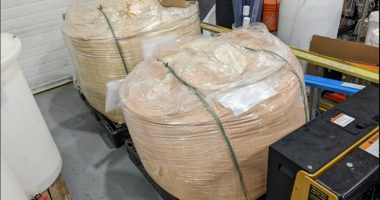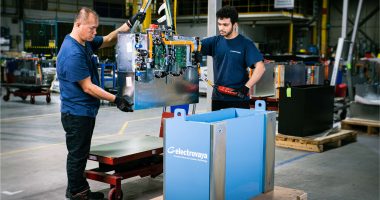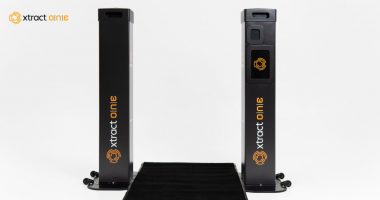Welcome to the Market Herald Video Q&A Podcast.
I’m Simon Druker.
Forward Water Technologies is a Canadian company at the forefront of the green movement. Founded in 2012, the Ontario-based firm is dedicated to saving the global water supply. It uses its proprietary Forward Osmosis technology to reduce waste streams while at the same time returning fresh water for reuse or surface release.
Forward Water’s focus lies in large-scale application of its technology across several very different sectors.
To tell us more about it, we are pleased to be joined today by the company’s CEO Howie Honeyman.
Howie, thanks for taking a few minutes out of your day for us.
TMH: To start, give us an overview of how your technology works and how you can apply it to different industries like mining, agriculture, wastewater. You’re able to reclaim up to 90% of the water that you filter, is that right?
HH: That’s correct. A lot of processes have relied on water as a key material for production of whatever those processes are, whether it’s in the mining industry or the manufacturing industry. They’ve generally looked at water as a once through product. That is, you take the water, use it in your factory and it becomes so contaminated that it is only a waste product. One which is really, really expensive to treat or deal with otherwise. What we do is we take that wastewater once it’s been used for its industrial intent and we extract clean reusable water from that waste that can’t be done today except by techniques such as burning, burying or boiling. That is, you heat it and boil it to evaporation or you send it down a deep well for permanent disposal or some cases you even incinerate it. We can take that wastewater and extract clean reusable water, and put it back in the front end of the process. Now you’ve got a recycled resource that you’re able to reuse over and over again as opposed to a single use once through product or consumable.
TMH: Tell us about your relationship with the lithium producing industry and why it is such a good fit for your technology?
HH: Obviously the race towards electronic vehicles, electric power generation for all sorts of things that we use is driving the need for lithium and other key metallic materials. It turns out, and this is an emerging application, this is something that we realized we could point our technology at. As many lithium producers to race and try to close the supply/demand gap, which is huge right now, much of the new lithium is known to be contained in aquifers, underground water deposits. The problem with those underground water deposits is the lithium is very, very dilute. Forward can take those streams and concentrate them. That way they’re much easier to process downstream making the lithium capture process, both easier and allowing us to return clean water back to the aquifer that it originally came from and replenish those aquifers while making the lithium capture even more efficient.
We’re working with several lithium companies that are in the business of producing lithium carbonate, which is the raw material to produce the batteries and make their processes more efficient. What I really like about this for us is not only do we have utility for one or two players, but it looks like we’re going to have utility for many of the industrial lithium producers across the globe. We’ve been in discussions with people from the United States to Asia and as far away as the United Kingdom. They are all chasing the lithium deposits in those naturally occurring aquifers and we’re going to make their processes more efficient. I love the fact that we come there working on a sustainable need that the global population needs and we’re going to make that process more sustainable. We’re going to ensure we conserve those important water resources. In arid areas where they’re refining these lithium streams, we’re going to be able to return back clean water to the local communities and maintain their quality of life as much as possible as well. It’s an exciting place for us to play both from an economic viewpoint but also from a sustainability view as it impacts the local communities.
TMH: How does your technology fit into the (lithium) mining industry, given the desire and push for a greener future and smaller carbon footprint?
HH: A couple of things to look at; water is a key material in mining and resource recovery or mineral recovery. It is something that is essential to those processes and that’s not going to change. However, what we can do is we can recover the water that gets used and reuse it on an ongoing basis. That means we’re not taking more fresh water from the local resources but returning it. It also means that we’re not contaminating it further. In addition, in some cases these industrial wastewaters, they’re literally boiled to dryness to treat the water. So that has a huge carbon footprint. We’re using a naturally occurring osmotic process using a membrane with very low energy input and it looks like we’re well over 50% in eliminating CO2 remissions compared to traditional evaporative systems, which are the standard. Forward is coming into these in industrial needs where water is important but we’re allowing the water to be reused, we’re discharging clean water, and our carbon footprints about a 50% reduction compared to traditional evaporation. So again, we’re doing both, and that’s the key thing. You must go forward with an economically advanced process plus you have to do it in a way that reduces your carbon footprint and I think we can achieve both of those goals
TMH: Who or where are your biggest customers, who is seeking out your technology?
HH: Well we have a number of industrial verticals, everything from food processing, which creates a lot of brines, and a lot of brines from industrial manufacturing that need for management, sort of call it hard product manufacturing, whether it’s electronics or chemical production. We’ve got a partner in India that is working in the chemical industry. We know there’s a huge demand there, but I’ll go back to lithium. The race to lithium is difficult to understand how important that is and how much of a huge gap there is between the demand, which is enormous and the supply which is only currently only a fraction of that demand. Because our technology fits into a very nice way into that extraction process and the fact that lithium producers are being forced to not only get lithium at a good cost point but they have to do it in a sustainable way. We’re seeing really big uptake in those lithium production pathways and so our biggest customers and clients are in that area. The current technologies, the evaporative technologies, which have a huge carbon footprint and we’re being able to step in there, displace those evaporative techniques with something that’s got a much better carbon footprint. So, as I mentioned, you have to do both and I think that’s true in the lithium industry as well and we’re providing that opportunity. In short, there’s a bit of a gold rush chasing lithium and we’re selling shovels and I think that market is looking for a good shovel.
TMH: You see a large part of Europe awash in drought right now, the same goes for big parts of the U.S. west coast and south. From a business standpoint, what excites you most about Forward Water’s immediate future in a world that will obviously need more sources of fresh water going forward?
HH: I think we need to be pragmatic about this and I kind of dislike bringing this up but the climate change is locked in and we are seeing the ramifications of that in China, as well as Europe as you mentioned, across North America. Unfortunately, those are only going to grow in terms of being problematic. However, that creates opportunities for companies such as ours, right? We’re bringing in something that can reclaim used water, that can reduce the demand on the freshwater that we do all have to share and partake in, and at the same time limit the amount of CO2 that’s pumped into the atmosphere that exacerbates the climate problem. From a business perspective, I think the opportunity is overwhelming and will only grow. From a personal perspective, trying to work toward a better planet and a safer planet is also being accomplished. I think that’s also really exciting as well. Perhaps you can’t hang a dollar sign on that quite as effectively, but I think we’re doing both tracks. We’re preserving the planetary resources but we’re doing so in a way that is more economical and provides greater value to the people who are using it.
TMH: Is there anything that we haven’t touched on yet that is important to mention to our viewers and your investors?
HH: Absolutely. There’s a couple of really key things. One in particular I mentioned, we are laser focused on developing our brine and industrial management system for these industries, the industrial industry, as well as the lithium industry. We also realize we did something unique and that is we extract water from low concentration to high concentration materials using a non-thermal non-evaporative process. We sort of scratched our heads and said, well, where else could we use that? Turns out with some minor modifications of the basic technology, still intellectual property that we own, we can extract water from food products. What that means is we can create food product concentrates that retain all the benefits and flavors of the original juice or extract and create concentrates that can’t be made today. For Instance, what we can do is we can do create cold coffee concentrate that can be used as a flavoring ingredient. This coffee concentrate, instead of being boiled down to a concentrate, retains all the flavors and qualities of the original coffee.
Now you’ve got a unique flavouring agreement that you can use to differentiate products on a grocery store shelf and your granola bar now stands out, your fruit juices are now concentrated so you can get the benefit of the concentrate price but it has the best quality of the original juice. So, it’s like fresh juice from concentrate in a real sense and it maintains those flavor profiles. We’re exploring that as a fairly novel way to exploit our technology and we’re really excited by that as well. We’ve got this flavoring concentrate business that we’re looking at developing, we’ve got our industrial treatment wastewater business that we’re delivering the technology to. So really, we’ve got a really solid foundation for creating a company that has some legs to it and are really excited about bringing both of those ideas forward.
Thanks again for joining us at The Market Herald today, Mr. Honeyman. We look forward to chatting with you again soon.
We’ve been speaking with Howie Honeyman, the CEO of Toronto-based Forward Water Technologies. The company trades on the TSX Venture Exchange under the ticker symbol FWTC. For regular updates, visit https://www.forwardwater.com/.
Once again I’d like to thank Mr. Honeyman for joining us to learn more about his company and share his insights with our Market Herald video podcast audience and investors.
I’m Simon Druker or The Market Herald. Thanks for watching and we’ll see you next time.
FULL DISCLOSURE: This is a paid article produced by The Market Herald.



